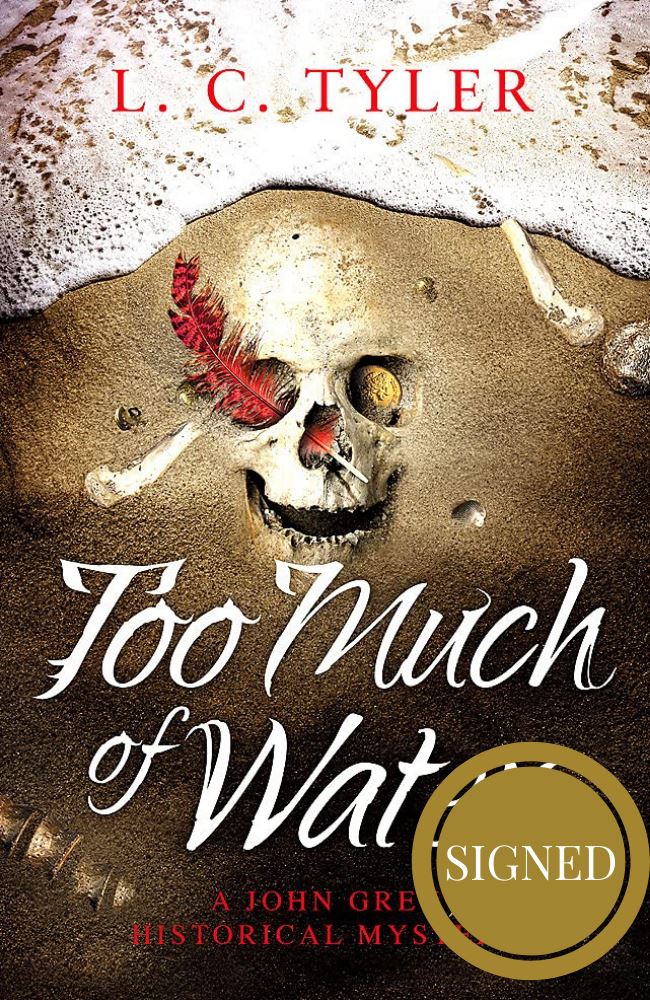Goldsboro Books
9781472135070Too Much of Water
Too Much of Water
Publisher Constable
Genre: Crime
Publication date:
Available from:
- Signed by the Author
- UK First Edition
- First Printing
- Hardcover
Out of stock
Couldn't load pickup availability
Limited Edition Copies
View full details
-
Professionally Packed
All of our books that have a dust wrapper are covered in clear protective, removable film and are packed professionally in bubble wrap and a box for shipping so that they reach you in perfect condition.
-
Book Condition & Notes
All of our books that a have dust wrapper are covered in clear protective, removable film and are packed professionally in bubble wrap and a box for shipping so that they reach you in perfect condition.
About the book
Eastwold, 1670, and local legend tells how on a still night, if you stand on the beach there, you can still hear the bells of the drowned church of St James tolling mournfully beneath the waves...
Eastwold, once one of the greatest ports in England, has been fighting a losing battle with the sea ever since it was granted its charter by King John. Bit by bit the waves have eaten the soft cliffs on which it stands, until only a handful of houses remain. But still it sends two MPs to Parliament and rich men from London are prepared to pay well for the votes of the dozen or so remaining burgesses of the town.
The voters are looking forward to a profitable by-election, only for the Admiralty's candidate, the unpopular Admiral Digges, to end up in a fishing net, every bit as drowned as his prospective constituency. Is it an accident, as the coroner has ruled, or has Digges been murdered, as the Admiralty fears? John Grey, Justice of the Peace and former spy, receives a request from the authorities to uncover the truth.
Hot on the heels of Grey is Samuel Pepys, sent by his master the Duke of York to stand for the watery seat in place of Digges. He also brings Grey clarification of what kinds of truth the Duke is happy for him to uncover and what he should ignore. With spring edging cautiously towards the windswept east coast, Grey starts to question the remaining residents and other well-paid officials of the non-existent town. He meets with suspicion from the voters and polite obstruction from Pepys. Will Grey uncover the murderer before the last of the town vanishes beneath the waves? As one of inhabitants warns him: 'This is a troubled place, Sir John. It is a dead town. Can you not feel that? Have you not seen the bones that litter the beach? It is a dead town that cries to be buried and forgotten.'
Collapsible content
About the Author
L. C. Tyler
Collapsible content
GPSR EU Safety Information
1. Manufacturer Contact Information
Goldsboro Books Ltd - 23-27 Cecil Court, London, WC2N4EZ, enquiries@goldsborobooks.com, 02074979230
2. EU Authorised Representative Information
Easy Access System Europe - Mustamäe tee 50, 10621 Tallinn, Estonia, gpsr.requests@easproject.com
3. Safety Warnings
Not applicable







